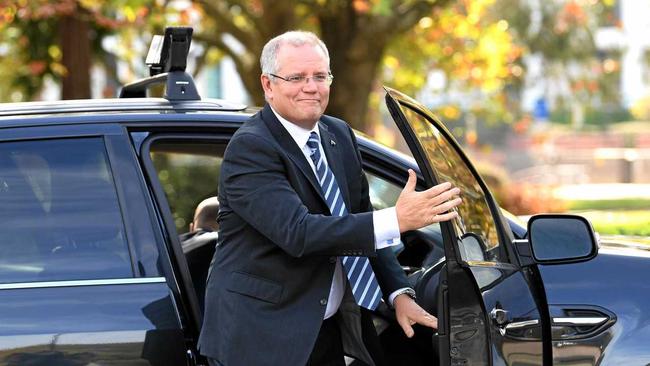Don't bet the house on the Budget
In terms of their impact on financial markets and on investment decision-making, Commonwealth budgets typically have a shelf life of about 48 hours, tops.

Business
Don't miss out on the headlines from Business. Followed categories will be added to My News.
FINANCIAL market economists are meant to love Budget night.
I don't and never have. In terms of their impact on financial markets and on investment decision-making, Commonwealth budgets typically have a shelf life of about 48 hours, tops.
I've never seen anyone change (nor have I recommended anyone change) their investment strategy based on anything heard on Budget night.
So what to expect next week? Let's start with the Budget numbers. I suspect the government will report a modest improvement in the projected Budget bottom line, but not much of one.
True, commodity prices are stronger, which should boost company tax receipts, but wages growth is still very weak.
After several years of disappointing wages growth, bracket creep (and the revenue gains that flow from it) would be a nice problem to have. What about the much discussed measures to address housing affordability? I have no great insight into what the Treasurer may announce, but let me make two points.
First, I'd question whether we really have a nationwide housing affordability crisis. A recent, somewhat limited international survey showed the median Sydney house price at $1.08 million, the equivalent of 12.2 times median Sydney household income. However, the same figure for the median of more than 50 Australian cities surveyed was 5.5 times. Outside of Sydney and Melbourne, you get a very different picture of housing affordability. In Townsville and Rockhampton the figure is 4.1, in Mackay 3.5 and Gladstone 2.8.
Second, let me make one bold budget night prediction.
Any measure that is meant to work by giving first home buyers more spending power today - either from their super (which by the way is a really bad idea) or from anywhere else - simply ends up adding to demand, boosting prices further and not improving affordability.
Worthwhile measures would need to be aimed at significantly increasing supply or reducing demand from buyers other than first home buyers, or both.
It's hard to see anything like that emerging from next week's Budget, especially since it means property prices might actually fall.
Brian Parker is a chief economist with Sunsuper and can be contacted on brian_parker@sunsuper.com.au
Originally published as Don't bet the house on the Budget


